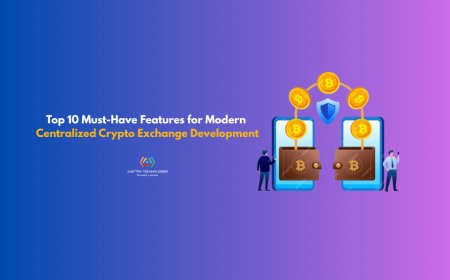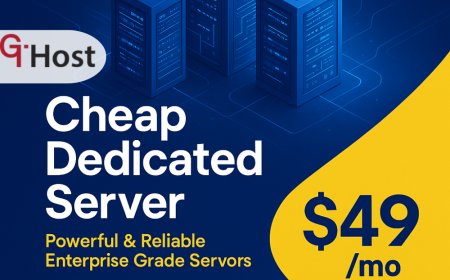Building Scalable Systems Without Losing Your Company’s Soul

Growth is exciting. It is a sign that the product, the team, and the vision are all working toward the same aim. However, as if by magic, and as the businesses grow, so does the complexity, and if not given particular care, a gradual corrosion may wipe away what had made the business truly great in the first place.
Designing bigger-scale operations calls for more systems, structure, and efficiencies. But the real issue is not just implementing processes; rather, it is to do so in a way that protects the values, culture, and sense of purpose of your company. The best companies know that systems support people; they do not replace them. They build systems carefully to ensure that their soul is not sacrificed to scale.
Why Scaling Goes Wrong Most of the Time
Scaling is often looked at as nothing more than an operational concern; more automation, more standard operating procedures (SOPs), more layers of management. The stuff that goes missing usually includes real leadership, creativity, and human-centric thoughts.
That especially happens when leaders give their undivided attention to the technical side of scaling: platforms, dashboards, delegation trees. While those things matter, they don't build resilience, trust, or innovation. They don't inspire anyone to stay through growing pains and changes in structure.
That ensures the humanity of any business during ones dominance and growth: culture and leadership, not just the infrastructure.
The Soul of a Company Lives in Its People
A company that is founded with a strong story, a mission, and a set of values attracts both employees and customers. The ending of losing that essence generally begins quite subtly: a fresh new employee who simply does not align with the mission, a process that expects too much speed and not enough quality from its people, or a decision where the metrics of success take precedence over empathy.
If we seriously want to talk about building scalable systems, we should be talking about building emotional resilience in leaders and teams. Change is inevitableas explained in The Lifelong Journey of Building Resiliencebut whether the change brings a company to success or impasse all depends on how the company navigates that change.
Leaders who have an unwavering focus on sustainable growth will have to make sure on equal terms that the very humanity of their organization remains preserved. This means listening more, aligning values with every single update in policy, thereby creating environments where people feel acknowledged and supported instead of merely productive.
The Role of Visionary Leadership in Purpose-Driven Scaling
One of the most vivid examples of scaling with soul would be that of visionary entrepreneurial leadership presented by Nick Beghtol, founder and CEO of Lash and Company. Extending through his entire leadership journey, Nick consistently balanced growth through endless prioritization of creative freedom, emotional intelligence, and team empowerment all aimed at a growing network of med spas and esthetic academies.
In Nick Beghtol's profile, you will see firsthand how his response to growth is around purpose and people, not just process. Instead of dilution of culture accompanying the growing pains, Nick leveraged culture tenfold, embedding core values into hiring practices, training, and strategic partnerships.
Here's the secret: you don't scale in spite of your values; you scale because of them.
Creativity Is a Core Business Strategy
Creativity is something most businesses treat as an indulgence. This is the kind of thought process that says, "Let's get systems in place first and talk about creativity later." And it's just wrong. Creativity is integral to the scaling process because it supports a team in thinking broadly, solving new problems, and being flexible in terms of the solutions it provides.
According to The Power of Creativity in Business, organizations that foster creative thinking become more adaptive, resilient, and innovative. Creativity also fosters emotional connection; ironically, maintaining that connection becomes a bit more difficult yet downright more crucial as you scale.
Embedding creative rituals, celebrating the experiments, and hiring for diverse perspectives are some ways of keeping the soul of your company intact even as the systems evolve. And that creativity applies not only to products but also to people management, communication, and leadership.
Scaling Without Losing Yourself: Practical Tips
Here are a few core strategies for building scalable systems that don't sacrifice your identity:
1. Start with a culture audit. What values show up consistently in your team's behaviors? Are they reinforced in your systems?
2. Build systems that serve people- not the other way around. Ask your employees for feedback before implementing major changes.
3. Coach your leaders, not just your managers. Give decision-makers the emotional intelligence and tools to lead through growth.
4. Align systems with story. Every process should be traceable back to your mission. If it isn't, reconsider it.
5. Celebrate progress, not just performance. Make room to recognize the human aspects of growth-teamwork, learning, and perseverance.
Final Thought
Scaling is not just a business function-it's a leadership philosophy. It's about expanding without losing sight of what matters most: your people, your purpose, and the soul that brought your vision to life.
At The Business Leadership Consulting, we help organizations scale intentionally-with systems that support culture, leaders who prioritize connection, and processes that evolve without erasing what makes you unique.
If you're ready to grow without losing your essence, it's time to lead with heart, not just strategy.
























